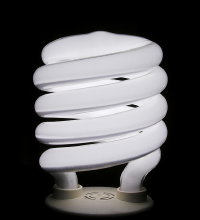“The Efficiency Dilemma”: Does Saving More Mean Using More?

That’s the engaging question explored in the 6-page story “The Efficiency Dilemma” by David Owen in the Dec 20 & Dec 27, 2010, issue of the New Yorker.
Owen explains that many people regard energy efficiency as a so-called “fifth fuel” after coal, petroleum, nuclear power, and renewables: it’s “seen as a cost-free tool for accelerating the transition to a green-energy economy.”
He cites Amory Lovins, the entrepreneur and strategist, as one of the leaders of the resource efficiency movement. Owen notes that Lovins has referred to the use of more expensive compact fluorescent bulbs as “not a free lunch, but a lunch you’re paid to eat” since those bulbs can save enough electricity to offset their price. (See MIT SMR’s October 2009 interview with Lovins for a detailed look at his ideas.)
Owen argues, though, that “the issue may be less straightforward than it seems.” Refrigerators are a good example of the problem: while they have become much more energy efficient in the past 35 years, the global market for refrigeration has not just kept pace but exploded, and “the world’s total energy consumption and carbon output, including the parts directly attributable to keeping things cold, have climbed.”
Economists who see this correlation as not coincidental call this it the Jevons paradox. It’s the idea that improvements in energy efficiency do not lead to lower energy use but to an over-all increase. The concept is named after William Stanley Jevons, who made the argument in 1865 in his book “The Coal Question.”
Think about your own energy use: if you drive a car, it’s probably more efficient today than it was 10 years ago. But do you drive the same or less than you did 10 years ago? For me, the efficiency mostly means that my car is cheaper to use. (On the other hand, raise the price of my gas to $5 a gallon, and my use will go down. I saw that when prices spiked in the U.S. a few years back.)
Jumping to the end of the piece, here’s part of Owen’s conclusion:
“Decreasing reliance on fossil fuels is a pressing global need.

Comments (2)
Darron Burow
Cobb